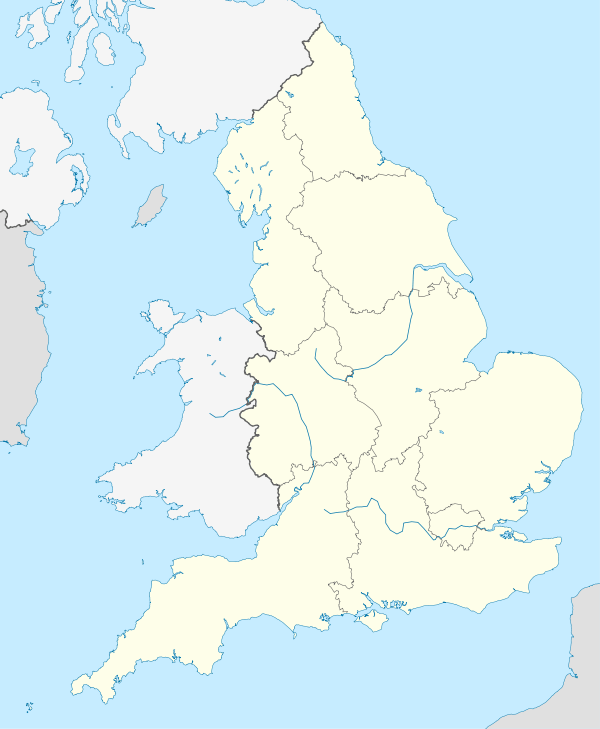Witherslack Mosses
| Witherslack Mosses | |
|---|---|
|
IUCN category V (protected landscape/seascape) | |
 Map of England | |
| Location | Cumbria, England |
| Coordinates | 54°14′10″N 2°50′22″W / 54.2362°N 2.8395°WCoordinates: 54°14′10″N 2°50′22″W / 54.2362°N 2.8395°W[1] |
| Area | 486 ha (1,200 acres) |
Witherslack Mosses are a fragmented wetland west of the Kent estuary in Cumbria, England, within the Lake District National Park. They consist of three raised bogs, the remnants of a formerly extensive, estuarine bog, which are protected under the Habitats Directive as a Special Area of Conservation.[1]
- Foulshaw Moss, with an area of 350 ha, the largest of the three.[2]
- Meathop Moss, 82 ha[3]
- Nichols Moss, 7 ha[4]
The site was designated an SAC in 2005, although the bogs were already individually protected as nature reserves in the care of Cumbria Wildlife Trust and, under UK legislation, as Sites of Special Scientific Interest. All retain some of the original dome structure, characteristic of raised bogs. However, each has been at least in part degraded by peat-cutting around the edges. Restoration work has been carried out reversing afforestation and associated drainage work.[5]
Public access
Parking for Foulshaw Moss is just off the A590 (westbound).

Raised water levels, as a result of bog restoration work, adversely affected public access to Meathop Moss and Foulshaw Moss around 2012, and the boardwalks had to be relaid.
Fauna
The mosses are known for their invertebrates.[6] The restoration of the wetland has seen species returning, notably:
- White-faced Darters (reintroduced from 2010).[7]
- Ospreys (nested successfully at Foulshaw Moss in 2014).[8]
References
- ↑ 1.0 1.1 "Witherslack Mosses (Site UK0030302)". European Environment Agency. Retrieved January 25, 2013.
- ↑ Foulshaw Moss, Cumbria Wildlife Trust. Retrieved November 2013
- ↑ "Meathop Moss". Cumbria Wildlife Trust. Retrieved November 2013.
- ↑ Nichols Moss, Cumbria Wildlife Trust. Retrieved November 2013
- ↑ Amodeo, Christian. "Cumbria's largest peatbog restored.(Foulshaw Moss)(Brief Article)." Geographical (UK). Circle Publishing Ltd. 2004. Accessed via HighBeam Research. 27 Dec. 2012 (subscription required).
- ↑ "Meathop Moss". English Nature. Retrieved January 2015.
- ↑ "Rare dragonflies hatch at reserve following reintroduction". The Guardian. 2011. Retrieved January 16, 2013.
- ↑ "Ospreys seen at new site". Westmorland Gazette. May 2014. Retrieved 6 July 2014.